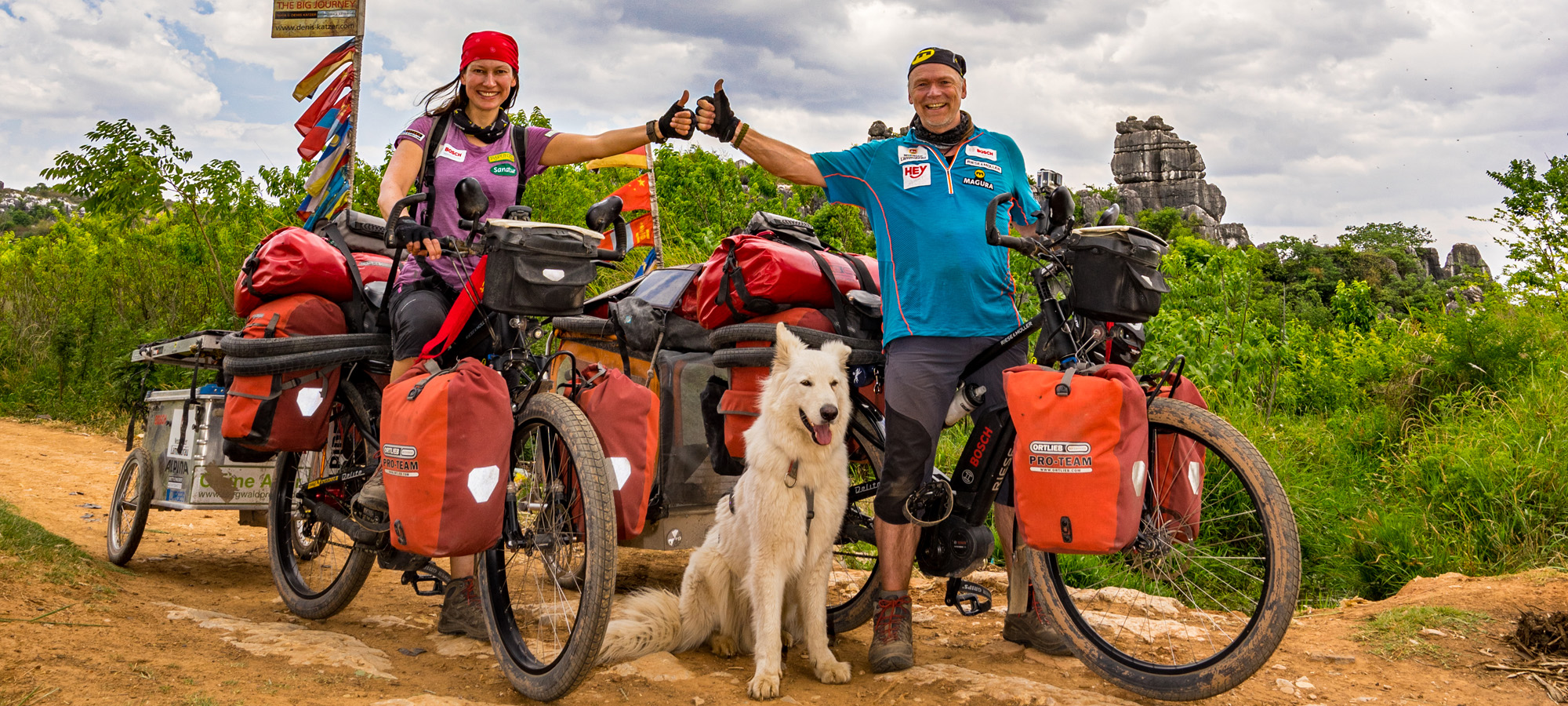
Germany and Ukraine are friends
N 46°40'03.5'' E 032°35'18.2''After a pleasant night’s sleep, we cycle through the rush hour traffic in the city of Mykolaiv. The iron, horribly smelly line of cars winds its way across a wide bridge over an estuary. We use the sidewalk, which is just wide enough for our trailers. Anglers stand on the high steel crossing, rumbled by the heavy trucks, and hold their routes into the water about 40 meters below us. We take the time to watch them for a while. “Come here,” an old man waves us over. We welcome him and answer his questions. “Are you from Germany? I was stationed there for three years. In Leipzig. It’s a beautiful country,” he says when a fish suddenly bites. Excitedly, he cranks up a fish about 15 centimeters in size. He puts it contentedly in a plastic bag. Then he hands Tanja the fishing rod. “Give it a try. Maybe you’ll get lucky,” he smiles. Other anglers look over at us and suddenly we are part of this idiosyncratic scene. The old men wave after us in a friendly manner as we continue on our way through the city. We have to drive 14 kilometers before we leave the hustle and bustle behind us. Then we are stopped by a barrier at a railroad crossing. “Sportsman, ha, ha, ha. That’s good. I’m a sportsman too,” says an older gentleman who stops next to Tanja on his bike and engages her in conversation while I film the freight train rattling past.
It gets relatively hot again around midday. As if a dragon were spitting its fire at us, we have to cycle against the wind all day today. Sweating, we take a break and buy some water in a store. As we leave the store, the owner comes after us with a bottle of water. “The truck driver over there spent that on you,” she points to a man hurrying away. We don’t even have a chance to say thank you as he disappears behind a corner. “Strange,” I say in amazement. “Yes, why would he do something like that?” asks Tanja. Then we pedal on. Again we pass dead dogs, cats and other animals that didn’t dodge the omnivorous tires in time. Sometimes a carcass is so blown up by the sun that it looks huge. It stinks from afar. I now avoid looking at the often gaping wounds and intestines lying around. I turn my head to the side. Doesn’t want to know anything about this appalling reality. Suddenly, an overturned van lies in the ditch in front of us. Its cargo is scattered everywhere. People believe them together. Police stand at the roadside and appear to be securing the action. We stop for a photo. “Come over here! Take a photo of me!” shouts the policeman. As we generally don’t really like policemen, we thankfully decline and continue on our way. Hours later, two police officers check the traffic in front of us. I recognize the law enforcement officer from earlier. “Come on! Take a photo of me!” he calls out to us again. He stops the traffic with his trowel so that we can cross the busy road to him. Then he holds Tanja’s bike, puts his arm around my shoulder and smiles with obvious pleasure at Tanja’s camera. “Germany and Ukraine are friends. Show the picture in your country,” he asks us as we drive on. The sun is already low when, after almost ten hours and 75 kilometers, we are allowed to rest and feed our tired bodies in the city of Kherson.

